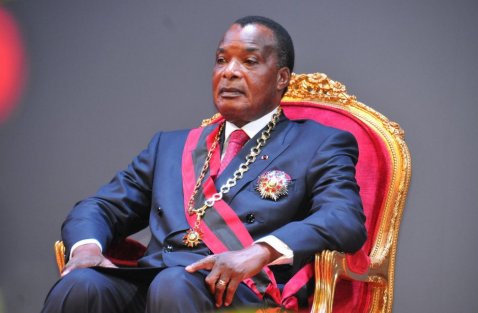Under the high patronage of H.E. Denis Sassou Nguesso, President of the Republic of Congo, the Pan-African Parliament (PAP) in collaboration with the Republic of Congo and the United Nations Programme on HIV/AIDS (UNAIDS), will hold a High-Level Pan-African Summit on HIV/AIDS and health financing in Africa from 11 to 12 July 2019 in Brazzaville, Congo.
The Summit aims to engage African Union member states, international donors and bilateral partners on the need to mobilize domestic resources, maintain and sustain investments for the AIDS response in Africa, in a bid to meet Fast Track targets and to eradicate AIDS.
The Rt.Hon. Roger Nkodo Dang, President of the PAP stresses the importance of parliamentarians in leading advocacy efforts to ensure the availability of adequate funding at national level to finance HIV/AIDS prevention and treatment programmes, saying more high-level engagements would certainly spur stronger political will, global solidarity and shared responsibility to build momentum and deliver on the goal of ending AIDS by 2030.
“We are faced with an urgency to find durable sources of finance to combat AIDS and improve essential public health in Africa. Brazzaville shall deliver a firm commitment to scale up national investments in light of the substantial reduction of funding. I therefore look forward to the transformative consultations that our Legislators shall hold with continental and global partners at this high-level summit in Congo,” says Hon. Nkodo Dang.
The Rt.Hon. Roger Nkodo Dang also reiterates the significant role of parliamentarians in holding governments accountable for mobilizing resources in support of the forthcoming Global Fund Replenishment in October.
Among the specific issues on the agenda, are the unpacking of the role of parliamentarians in realizing the right to health and achieving health targets in Africa; sustainable financing, leadership and accountability; level advocacy and call for action and support for the upcoming Global Fund replenishment.
The summit is expected to be graced by various heads of state and government including H.E. Kgalema Petrus Motlanthe, former President of the Republic of South Africa and Champion for an AIDS free generation in Africa.
BACKGROUND
The impressive mobilisation of resources for financing global health in general and particularly the HIV and AIDS response in both domestic and international funding has been unprecedented in the history of public health. Significant progress has been made towards the African Union Catalytic Framework to End AIDS, TB and Eliminate Malaria by 2030 and Goal 3 of the Sustainable Development Goals (SDGs).
Despite the commendable efforts to increase domestic funding, the resources allocated to health are still insufficient given the required investment needs. In 2001, the Heads of State of the African Union committed, through the Abuja Declaration, to allocating at least 15 percent of national budgets to health care in order to achieve universal coverage.
Africa undoubtedly has many development priorities, including infrastructure, education, energy and security, to name but a few. However, investment in health is not in line with economic progress and international public funding commitments or standards. It is essential to mobilise more investment in order to accelerate momentum toward achieving the SDGs.
African countries can mobilise additional funds by placing more emphasis on health when determining sectoral budgets, optimising tax collection, broadening their tax bases or increasing taxes on unhealthy products such as tobacco and alcohol. Each country can adopt the option it considers most appropriate to its socioeconomic and political context in order to increase the resources allocated to health.
Current levels of funding would only maintain the status quo, would not allow us to achieve the Africa Health Strategy 2030 targets and would result in increased numbers of new infections and deaths. In this scenario, the HIV epidemic would outrun the response, increasing the long-term need for treatment and thereby dramatically increasing future costs. Current gains would be reversed, rendering HIV a perpetual epidemic which would damage human capital development and thereby weaken economic growth.
The High-Level Summit will provide a historic platform and opportunity for parliamentarians across the African continent, Heads of States, governments, foundations, civil society and the private sector to discuss policies and concrete actions for mobilising more domestic investments for HIV and health and to support the upcoming Global Fund replenishment in October this year.






